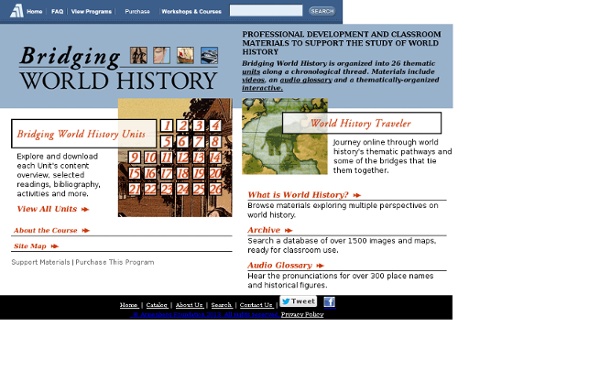



1 - Survival (Part 3) Google Historical Voyages and Historical Events Overview: What historical event, explorer, voyage, or local history would you like to share with other schools? Have you studied the settlement history of your own community? Have you studied about your state or country and historical events that helped shape it? This site is dedicated to the explorers, voyages, events, and historical backgrounds of countries throughout the World. This project is open to schools all over the World. Suggested Topics: Exemplars: Feel free to explore the projects that have been contributed by other schools. Some are designed so that students work independently as they learn about historical events or people. How to Submit Projects: Suggested Technology Tools: We would like to suggest that you "explore" using WEB 2.0 tools for your project. This site highlights Google tools. The projects hosted on this site should use at least two Google tools as students work though the learning part of the projects. Some Google tools you may find useful are:
Early Byzantine Art Early Byzantine Art As you know, Rome was the capitol of the Roman Empire until the era of Constantine. In 324, Constantine moved the capital from Rome to the Greek City of Byzantium and renamed it Constantinople. Things were fine for awhile, but by the 5th century of the common era, things began to change.The West was under attack by the barbarians and ultimately fell apart. The cities that were part of the Roman empire declined in population or simply died. Many cities in France, Algeria, Syria, etc. simply disappeared. Around 527, Justinian came to the throne in the East — the part of the Roman empire that had its capitol at Byzantium. The center scene here is the Adventus — Justinian is on horseback, with a barbarian begging for mercy. This is standard Roman imperial imagery — but juxtaposed with Christian imagery. Justinian did not see himself as presiding over a period of decline. At the time of Justinian’s reign, Constantinople was a large city of about 1.5 million people.
Beyond the Bubble...Standford History site. 1 - Survival (Part 1) World History for Us All A Weak Sun Possibly Brought Down The Tang Dynasty & Mayan Civilization Tomorrow’s issue of Science hosts lots of interesting papers, one of which is titled, “A Test of Climate, Sun, and Culture Relationships from an 1810-Year Chinese Cave Record,” and reports on the analysis of a 1.2-meter-long stalagmite from Wanxiang Cave in northern China. The analysis tells us that the rock holds records of waning Asian monsoon rains around 1,100 years ago. The dry spell was due to weakening of the sun, possibly from a sunspot, and this climate change is thought to have been what brought down the Tang dynasty. Map of Wanxiang Cave, China Stalagmites are calcium carbonate mounds which form from dripping groundwater. Comparing this result to Chinese historical records of rainfall, the authors matched the chemical analysis to the written record. P. Rate this: i 1 Votes Like this: Like Loading...
Veterans and White Supremacy by Kathleen Belew Kathleen Belew, a postdoctoral fellow in history at Northwestern University, is at work on a book on Vietnam veterans and the radical right. WHEN Frazier Glenn Miller shot and killed three peoplein Overland Park, Kan., on Sunday, he did so as a soldier of the white power movement: a groundswell that united Klansmen, neo-Nazis and other fringe elements after the Vietnam War, crested with the bombing of the Oklahoma City federal building in 1995, and remains a diminished but potent threat today. Mr. Miller, the 73-year-old man charged in the killings, had been outspokenabout his hatred of Jews, blacks, Communists and immigrants, but it would be a mistake to dismiss him as a crazed outlier. You can’t predict whether any one person will commit violence, but it would be hard to think of someone more befitting of law enforcement scrutiny than Mr. Before his 1979 discharge for distributing racist literature, Mr. Continue reading the main stor